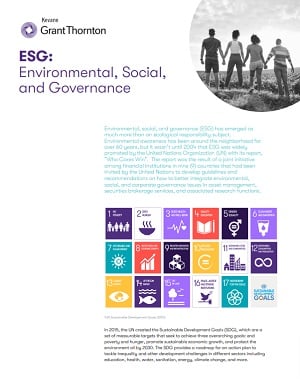-
Financial statements audits
Financial statement audits
-
Compliance audits
Compliance audits
-
Compilations and reviews
Compilations and audit
-
Agreed-upon procedures
Agreed-upon procedures
-
Tax compliance
Business Tax
-
Global mobility services
Through our global organisation of member firms, we support both companies and individuals, providing insightful solutions to minimise the tax burden for both parties.
-
Sales and use tax and indirect taxes
SUT/ VAT & indirect taxes
-
Tax incentives
Navigating the complex landscape of tax incentives in Puerto Rico can be challenging. Whether you're looking to benefit from the Export Services Act (Act 20), the Individual Investors Act (Act 22), or other incentives under Act 60, we provide tailored advice to help you maximize your tax benefits and ensure compliance. Let us help you unlock the potential of doing business in Puerto Rico.
-
Transfer Pricing
The laws surrounding transfer pricing are becoming ever more complex, as tax affairs of multinational companies are facing scrutiny from media, regulators and the public
-
International Business Center
Kevane Grant Thornton is an International Business Center within the Grant Thornton network. Our expert team provides integrated solutions to help Puerto Rico businesses navigate the complex issues that arise when developing global businesses.

-
Business consulting
Our business consulting services can help you improve your operational performance and productivity, adding value throughout your growth life cycle.
-
Business Risk Advisory
Risk is inevitable but manageable. We deliver relevant, timely and practical advices to aid organizations manage risk and improve business performance. We can help you identify, understand and manage potential risks to safeguard your business and comply with regulatory requirements.
-
Technology Advisory
We provide comprehensive solutions to safeguard your business and ensure operational resilience and compliance. Our expert team offers a range of technology advisory services designed to address your cybersecurity needs, enhance business continuity, and manage security effectively.
-
Transactional advisory services
Transactions are significant events in the life of a business – a successful deal that can have a lasting impact on the future shape of the organizations involved. Because the stakes are high for both buyers and sellers, experience, determination and pragmatism are required to bring deals safely through to conclusion.
-
Forensic and investigative services
At Grant Thornton, we have a wealth of knowledge in forensic services and can support you with issues such as dispute resolution, fraud and insurance claims.

Environmental, social, and governance (ESG) has emerged as much more than an ecological responsibility subject. Environmental awareness has been around the neighborhood for over 60 years, but it wasn’t until 2004 that ESG was widely promoted by the United Nations Organization (UN) with its report, “Who Cares Win”. The report was the result of a joint initiative among financial institutions in nine (9) countries that had been invited by the United Nations to develop guidelines and recommendations on how to better integrate environmental, social, and corporate governance issues in asset management, securities brokerage services, and associated research functions.

1UN Sustainable Development Goals (SDG)
In 2015, the UN created the Sustainable Development Goals (SDG), which are a set of measurable targets that seek to achieve three overarching goals: end poverty and hunger, promote sustainable economic growth, and protect the environment all by 2030. The SDG provides a roadmap for an action plan to tackle inequality and other development challenges in different sectors including education, health, water, sanitation, energy, climate change, and more.
ESG is based on the United Nations Organization’s seventeen (17) sustainability objectives. While the SDG is a global set of goals, ESG encompasses a rating system used by organizations to measure how well the companies are performing in terms of its social, environmental, and governance responsibilities. ESG is an opportunity to build a more sustainable business and a key differentiator to enhance relevancy and trust with organization stakeholders.
ESG can mean different things to different companies and sectors. Not all aspects will be relevant to the organization, it will depend on the industry in which the organization operates, its products and services, and its target customers.

Built strategically, an ESG program creates a valuable impact within your organization, your community, and the planet for years to come. Sustainability has become one of the reigning priorities in the mind of investors, especially young investors such as Millennials and Gen Zs, who are more interested in investing in profitable companies that target environmental and social goals.
In recent years, we have seen the development of a set of ESG reporting guidelines, frameworks, and even legislation, mostly in European nations. Frameworks provide principle-based guidance on how information is structured, how it is prepared, and what broad topics are covered. Standards provide specific, detailed, and replicable requirements for what should be reported for each topic, including metrics.
In Europe, the most common set of reporting standards used is the Global Reporting Initiative (GRI). Currently, there’s a new proposal by the European Commission called the Corporate Sustainability Reporting Directive (CSRD), which requires more companies to report ESG topics. Another set of standards is the Sustainable Financial Disclosure Regulation (SFDR), whose objective is to promote transparency in sustainable investments. In 2011, the Sustainability Accounting Standards Board (SASB) was created to assist organizations and investors with reporting and disclosing the financial impact on sustainability.
Since all these guidelines have different objectives and requirements, there is a push to develop unified standards. In 2021, the International Financial Reporting Standards (IFRS) announced the development of global sustainability reporting standards. This resulted in the merging and integration of the SASB and the International Integrated Reporting Council (IIRC), sponsored by the IFRS Foundation, which resulted in the creation of the Value Reporting Foundation, which was officially created in June 2021.
When planning for ESG, reporting should start by setting short-term and long-term sustainable goals. This process should take into consideration the industry in which the organization operates, the environmental impact, and social and governance reach. Goals should be communicated to all components and stakeholders. Once goals are set, the organization should begin to gather information to create the ESG report. This has proven to be the most cumbersome process of ESG reporting as most of the information is non-financial information, which may not be readily available.
Developing a sustainability report can be challenging, as much of the information may be difficult to gather and the report must meet the requirements of the reporting methodology selected, in addition it needs to be aligned with your business strategy. Finally, and most importantly, companies need to determine how to communicate relevant information and what ESG information and indicators to report, in order to achieve meaningful goals that would meet the expectations of the new wave of sustainable conscious investors.
We are committed to keeping you updated on all developments that may affect the way you do business in Puerto Rico. Please contact us for assistance in relation to this or any other matter, we will be glad to assist you.
DISCLAIMER: This update and its content do not constitute advice. Clients should not act solely on the basis of the material contained in this publication. It is intended for information purposes only and should not be regarded as specific advice. In addition, advice from proper consultant should be obtained prior to taking action on any issue dealt with this update. Information provided in this publication may change in the future and such change may be applied retroactively. Kevane Grant Thornton LLP does not assume the responsibility to update this communication if the applicable laws change.
© 2023 Kevane Grant Thornton LLP All rights reserved. Kevane Grant Thornton LLP is a member firm of Grant Thornton International Ltd (GTIL). GTIL and the member firms are not a worldwide partnership. Services are delivered by the member firms. GTIL and its member firms are not agents of, and do not obligate, one another grantthornton.pr and are not liable for one another’s acts or omissions. Please visit www.grantthornton.pr for further details.




